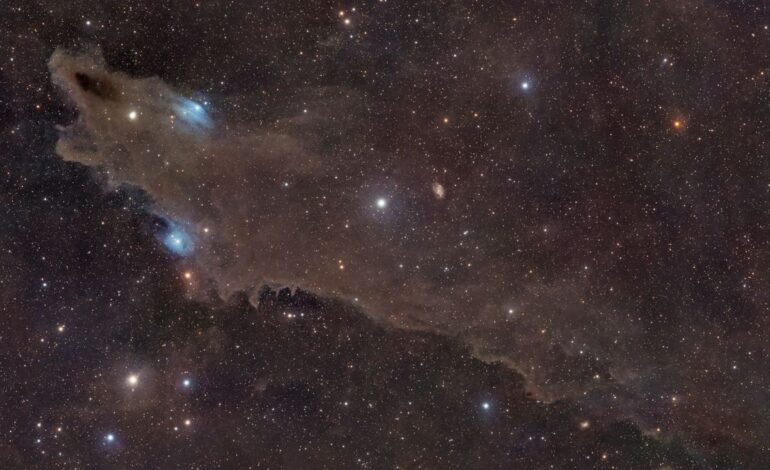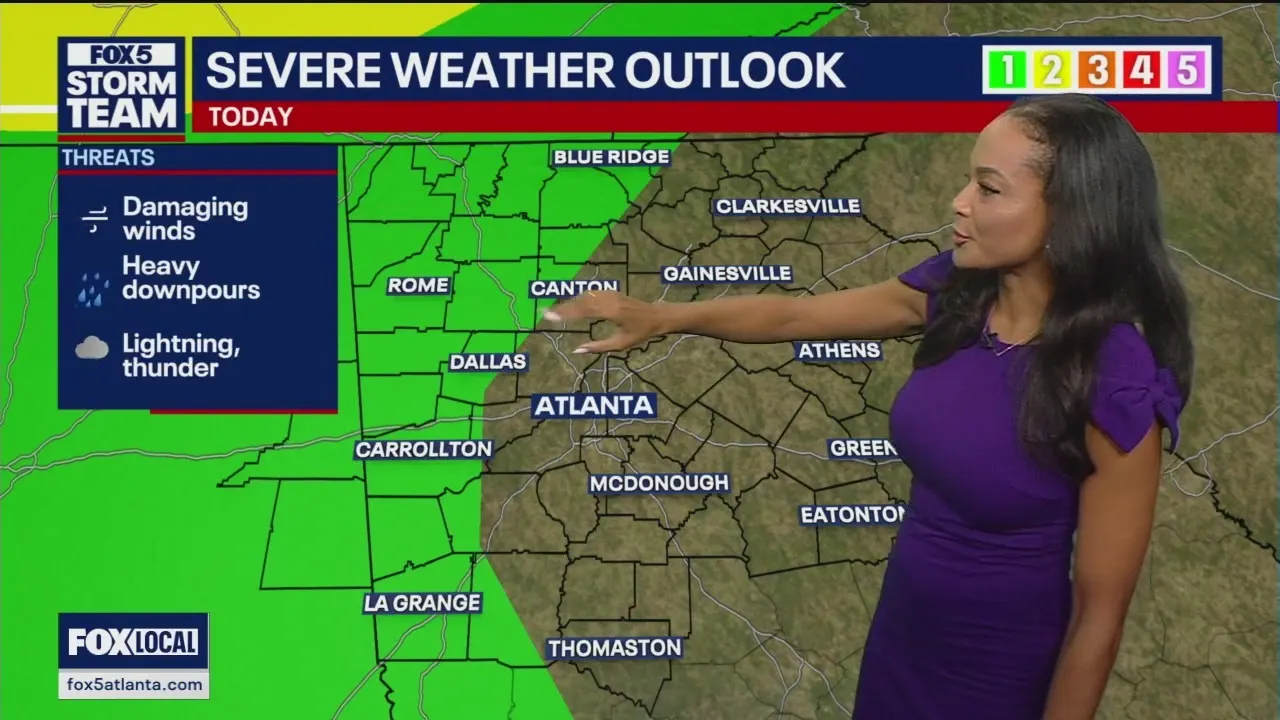Astrophotographer Unveils Cosmic Shark in Stunning Space Image

Astrophotographer Ronald Brecher has captured a remarkable image of what resembles a “cosmic shark” gliding through the depths of space. This stunning vista, taken between July 23-30, 2023, reveals a complex formation of deep-sky objects that together create the illusion of a colossal predator in the constellation Cepheus, approximately 650 light-years from Earth.
The body of this cosmic shark is formed by a vast interstellar cloud of dust and gas that spans 15 light-years from snout to tail. The shapes and contours of the cloud have been sculpted by the radiation from nearby energetic stars, giving it the appearance of a gaping maw. As viewers look across this nebulous body, they can also detect the outlines of dorsal and pectoral fins.
Brecher expressed his passion for capturing dark nebulae, stating, “I love imaging dark nebulae. You need a fairly long total exposure time without moonlight because the wisps of nebulosity are so faint.” He described the inclusion of additional celestial features as “icing on the shark. Er, cake.”
Notable Celestial Features
The single prominent “eye” of the cosmic shark is represented by the magnitude 6 star HD 211300. Just behind the shark’s dorsal fin, observers can spot the barred spiral galaxy PGC 67671, appearing as a faint smudge of light. Additionally, patches of blue visible at the top and bottom of the image are created by reflection nebulae, which scatter blue wavelengths of light from nearby stars.
Brecher utilized a Sky-Watcher Esprit 70 EDX refractor coupled with a QHY367C Pro astronomy camera for his astrophotography. The entire process involved multiple nights of exposure under the light of a first quarter moon, followed by post-processing with PixInsight software.
Astrophotography Exploration
For those interested in pursuing astrophotography, Brecher highlights the need for patience and the right equipment to capture such stunning visuals. The ZWO ASI533MC Pro camera, praised for its zero amp glow and 80% quantum efficiency, is among the recommended tools for aspiring astrophotographers.
As the night sky continues to fascinate both amateur and professional astronomers, Brecher’s captivating image serves as a reminder of the beauty and complexity of the universe. Those wishing to share their own astrophotography can send their images and details to Space.com for publication.






